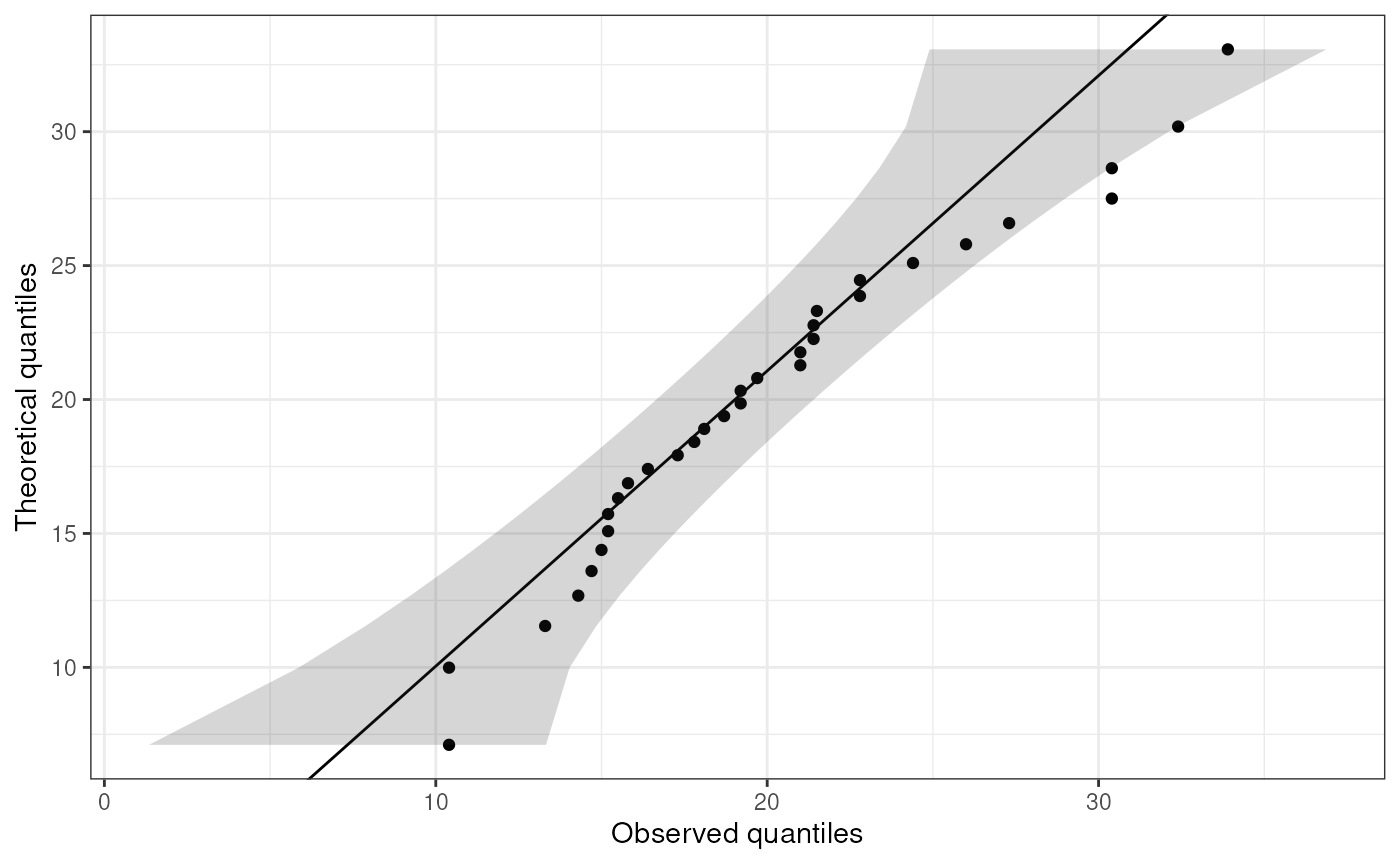This function creates a qq-plot with a confidence interval.
ggqq(
x,
distribution = "norm",
...,
ci = TRUE,
line.estimate = NULL,
conf.level = 0.95,
sampleSizeOverride = NULL,
observedOnX = TRUE,
scaleExpected = TRUE,
theoryLab = "Theoretical quantiles",
observeLab = "Observed quantiles",
theme = ggplot2::theme_bw()
)Arguments
- x
A vector containing the values to plot.
- distribution
The distribution to (a 'd' and 'q' are prepended, and the resulting functions are used, e.g.
dnormandqnormfor the normal curve).- ...
Any additional arguments are passed to the quantile function (e.g.
qnorm). Because of these dots, any following arguments must be named explicitly.- ci
Whether to show the confidence interval.
- line.estimate
Whether to show the line showing the match with the specified distribution (e.g. the normal distribution).
- conf.level
THe confidence of the confidence leven arround the estimate for the specified distribtion.
- sampleSizeOverride
It can be desirable to get the confidence intervals for a different sample size (when the sample size is very large, for example, such as when this plot is generated by the function
ufs::normalityAssessment(). That different sample size can be specified here.- observedOnX
Whether to plot the observed values (if
TRUE) or the theoretically expected values (ifFALSE) on the X axis. The other is plotted on the Y axis.- scaleExpected
Whether the scale the expected values to match the scale of the variable. This option is provided to be able to mimic SPSS' Q-Q plots.
- theoryLab
The label for the theoretically expected values (on the Y axis by default).
- observeLab
The label for the observed values (on the Y axis by default).
- theme
The theme to use.
Value
A ggplot plot is returned.
Details
This is strongly based on the answer by user Floo0 to a Stack Overflow
question at Stack Exchange (see
https://stackoverflow.com/questions/4357031/qqnorm-and-qqline-in-ggplot2/27191036#27191036),
also posted at GitHub (see
https://gist.github.com/rentrop/d39a8406ad8af2a1066c). That code is in
turn based on the qqPlot() function from the car package.
Examples
ggqq(mtcars$mpg);
